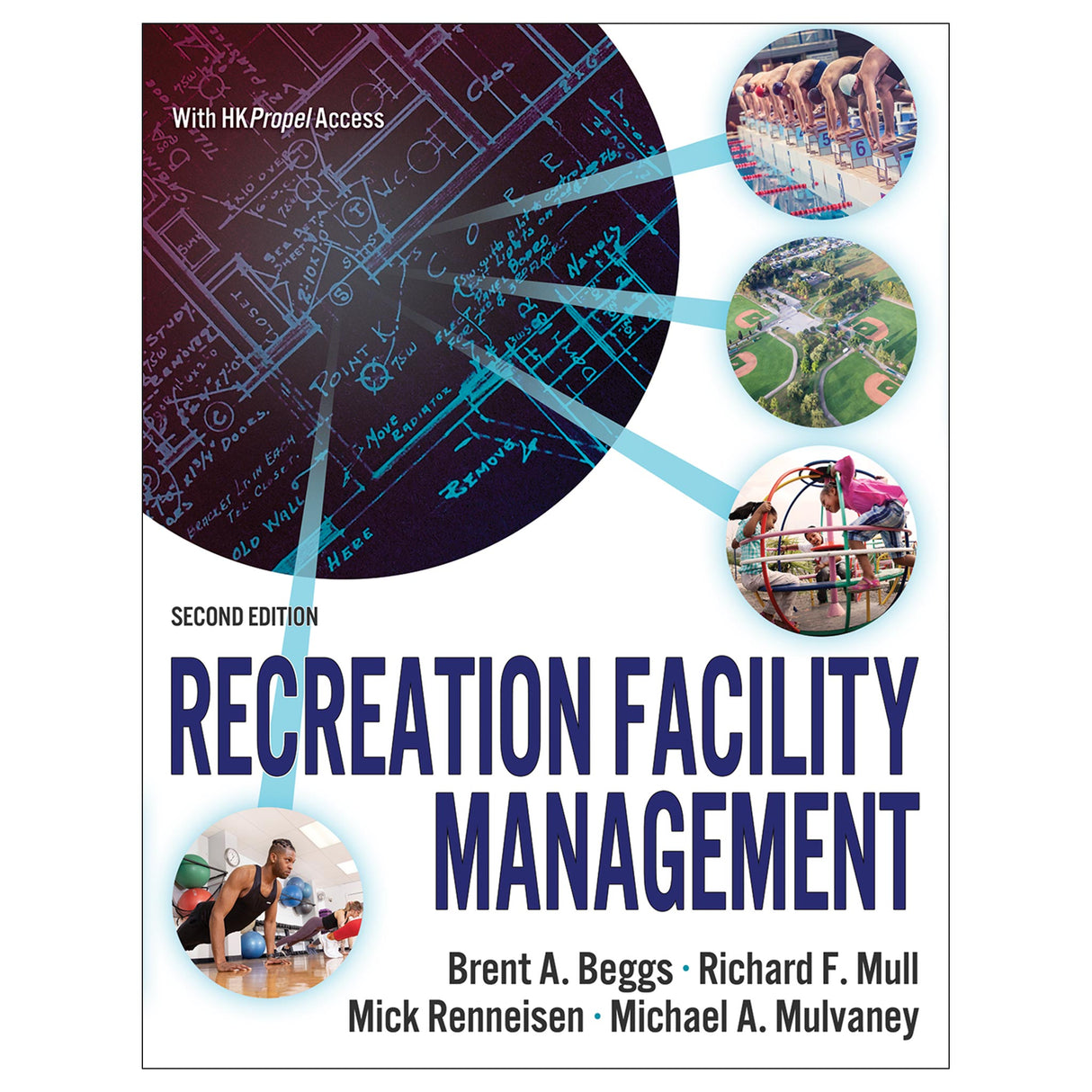Recreation Facility Management 2nd Edition Ebook With HKPropel Access
$135.95 CAD

Recreation Facility Management begins by defining the characteristics and expectations of the profession. It discusses the facility design and development process, including assessing needs, planning, reading blueprints, and securing funding. Topics such as facility resource management, financial issues, and human resources are explored in depth. The text then tackles strategies for utilizing facilities in a safe and efficient manner, addressing safety and security, maintenance, and emergency preparedness and response plans. Finally, a detailed examination of the operation of common types of recreation facilities is offered alongside coverage of national industry standards and guidelines.
Content updates to the second edition include a new chapter on ancillary space design with a focus on sustainability and technology updates as well as accessible design. A chapter was also added to address larger-scale recreational sport events and outdoor facilities. Recreation Facility Management also includes new enhancements to help students apply and retain important information:
- Learning aids, including chapter objectives, review questions, and summary elements, help to facilitate learning.
- Case studies provide real scenarios and related discussion questions to help students better understand the material. Sample answers to the questions are provided in the instructor guide.
- Industry Profile features offer real-world examples from the field.
- Check It Out elements call out special content to help engage readers.
- Online materials include learning activities as well as checklists and forms from the files of actual facility managers.
Note: A code for accessing HKPropel is included with this ebook.
Audience
Textbook for undergraduate courses in facility management, facility design, or operation of recreation areas and facilities. Resource for new professionals in the field.Chapter 1. Understanding Recreation Facility Management
Chapter 2. Managing Recreation Facilities
Part II. Design and Development of Recreation Facilities
Chapter 3. Assessment
Chapter 4. Planning
Chapter 5. Designing Ancillary Spaces and Core Product Extensions
Chapter 6. Designing Recreation Facilities and Reading Blueprints
Chapter 7. Funding and the Bid Process
Chapter 8. Constructing Recreation Facilities
Part III. Resources for Recreation Facility Management
Chapter 9. Managing Equipment
Chapter 10. Managing Finances
Chapter 11. Managing Employees
Part IV. Utilization of Recreation Facilities
Chapter 12. Circulation, Safety, Control, and Security
Chapter 13. Coordinating and Scheduling
Chapter 14. Maintenance
Chapter 15. Emergencies and Emergency Responses
Part V. Types of Recreation Facilities
Chapter 16. Parks and Playground Facilities
Chapter 17. Aquatic Facilities
Chapter 18. Recreational Sport Facilities
Appendix A. Professional Associations
Appendix B. Accredited Academic Programs
Interpreting legal requirements when building sport facilities
Trends in recreation facility management
Understanding the many different types of parks
All ancillaries are free to adopting instructors through HKPropel.
Instructor guide. Includes a sample course outline and syllabus; chapter summaries; lecture topics; tips for presenting key information; and ideas for assignments, lab activities, class projects, and paper or essay topics. Also includes suggested answers to the chapter review questions, reflection questions associated with the case studies, and discussion questions from HKPropel.
Test package. Contains over 500 questions in true-or-false, fill-in-the-blank, essay and short-answer, and multiple-choice formats. The files may be downloaded for integration with a learning management system or printed for use as paper-based tests. Instructors may also create their own customized quizzes or tests from the test bank questions to assign to students directly through HKPropel. Multiple-choice and true-false questions are automatically graded, and instructors can review student scores in the platform.
Chapter quizzes. Contains ready-made quizzes (9 to 10 questions each) to assess student comprehension of the most important concepts in each chapter. Each quiz may be downloaded or assigned to students directly through HKPropel. The chapter assessments are automatically graded, and instructors can review student scores in the platform.
Presentation package. Features more than 290 PowerPoint slides of text from the book that can be used for class discussion and presentation. The slides in the presentation package can be used directly within PowerPoint or printed to make handouts for students. Instructors can easily add, modify, and rearrange the order of the slides.
Instructors also receive access to all student materials in HKPropel. For Recreation Facility Management, Second Edition, this includes approximately 20 checklists and forms, plus learning activities and discussion questions.





